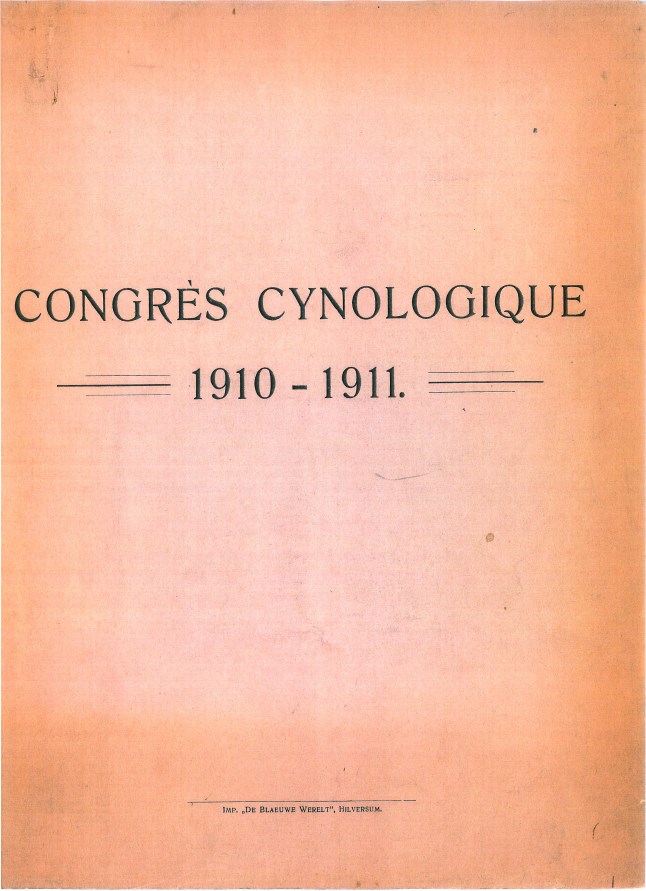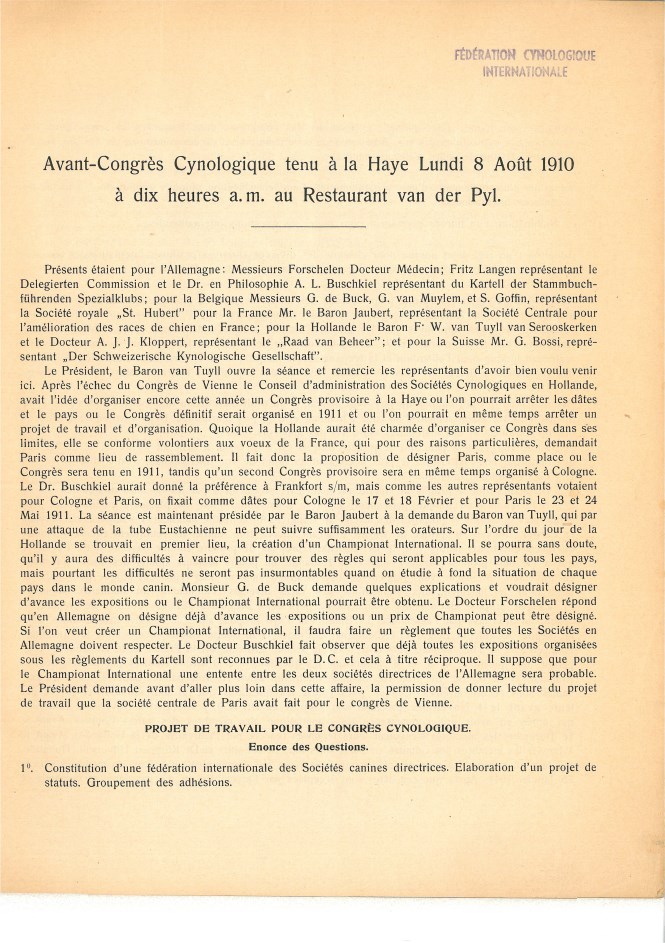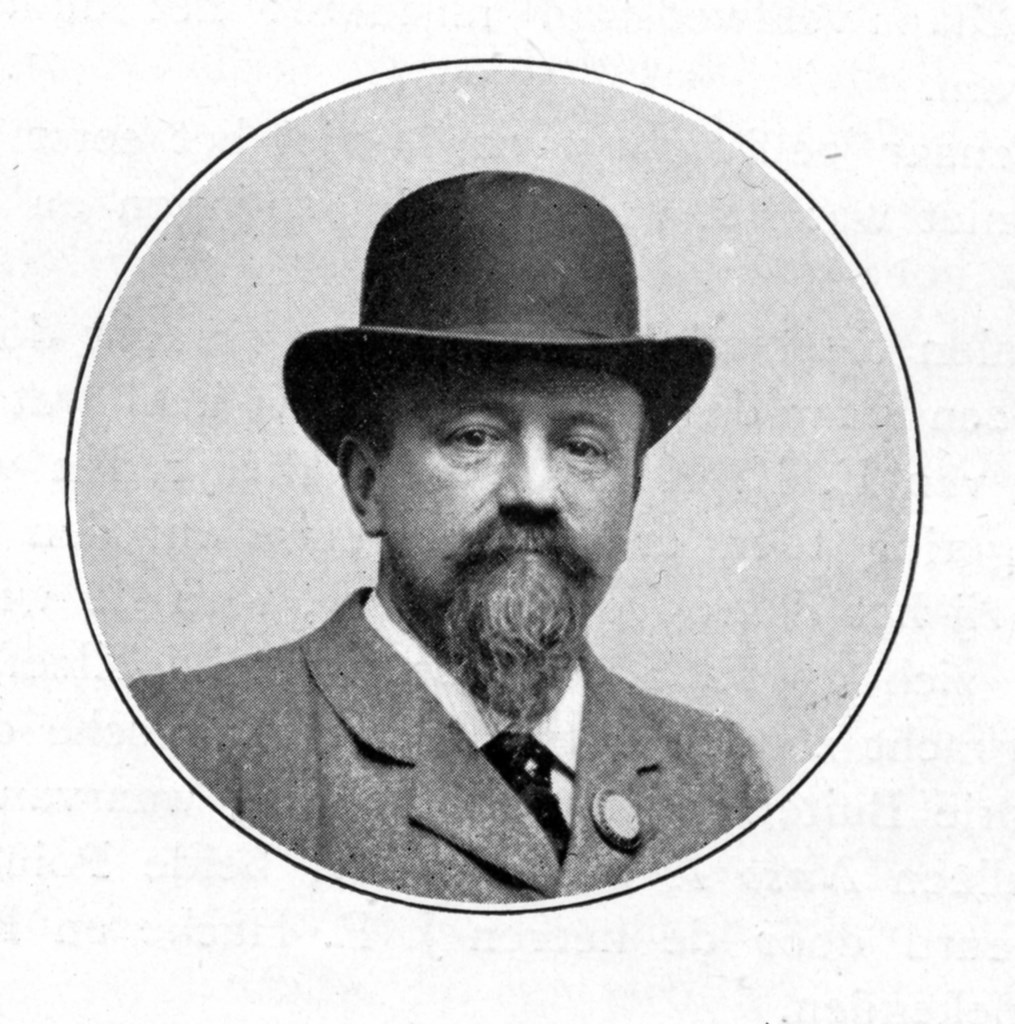The time has come to internationalise cynology
The Cynological Congress: the preparatory meeting held in The Hague on Monday, 8 August 1910
© Oleg Boshkov


Preparatory meeting, 1910, The Hague, cover of the minutes
© Oleg Boshkov


Preparatory meeting, 1910, The Hague, 1st page of the minutes
After failing to hold a Congress in Vienna, the “Executive Board of the Cynological Organisations in Holland” (sic) holds a provisional Congress in the Restaurant van der Pyl in The Hague on Monday, 8 August 1910, starting at 10.00 a.m. The objective of this meeting is to decide on the work needed to be done and the organisation for holding a definitive Congress in 1911 for the purpose of establishing an international canine federation.
The following delegates are present :
- For Germany : Dr med Forschele and Fritz Langen representing the Delegierten Kommission; Dr Phil. A.L. Buschkiel representing the Kartell der Stammbuchführenden Spezialclubs.
- For Belgium : Mr G. de Buck, Mr G. van Muylem and Mr S. Goffin representing the Société Royale Saint-Hubert.
- For France: Baron Jaubert, representing the Société Centrale pour l’Amélioration des Races de Chiens en France.
- For Holland: Baron F.W. van Tuyll van Seroonskerken and Dr A.J.J. Kloppert, representing the Raad van Beheer.
- For Switzerland: Mr G. Bossi, representing the Schweizerische Kynologische Gesellschaft.
This preparatory meeting is opened by Baron van Tuyll, who welcomes the delegates on behalf of Holland. Due to an ear infection (affecting the eustachian tube) preventing him from fully following what speakers are saying, he hands over the chair to Baron Jaubert. The minutes are kept by Dr A.J.J. Kloppert.
© Oleg Boshkov


Dr A.J.J. Kloppert (NL), very first Secretary General of the FCI (1911-1913)
The first problem to be dealt with involves setting the date and venue of the definitive Congress in 1911. The decision is taken to hold a second provisional Congress in Cologne on 17-18 February 1911, to be followed by the definitive Congress in Paris on 23-24 May 1911. The work already done by the Société Centrale de Paris in preparation of the Vienna Congress serves as a guideline for the discussions.
What needs to be done is to establish an official (statutes-based) international federation of national canine associations. The term "international" needs to be defined in such a way that it could be applied to international dog shows with their own specific regulations, programme and classification. Also needed are specific regulations for each of the various international trials open to hunting dogs and a similar set of regulations for international utility dog trials.
This entails the establishment of international lists of judges approved by their national canine associations, the reciprocal recognition of studbooks, prefixes and affixes, and the creation of a title of International Champion – an item put on the agenda by Holland.
The establishment of an international federation also requires the determination of the functions of the panel of judges, rules on the right to exclude associations and persons, disqualification in case of fraud, the establishment of a code of honour and a mediation panel. And even at the time the issue of the status of professionals and merchants vis-à-vis amateurs is being discussed.
The meeting approves the proposal to set up three Preparation Committees, each to look at different issues. Committee members are to send their final reports to Dr Kloppert (Hilversum, Holland) by 1 January 1911, who would then make a summary of all reports, sending this back to all members by 15 January 1911.
Mr van Muylem is on to propose that the organisations present should jointly and exclusively recognise each other as the National Canine Sport Associations of their respective countries. This proposal is unanimously accepted.
Mr Goffin announces the establishment of an information bureau and a documentation office in Brussels which is to be supported by the Belgian government. He requests that a resolution be passed at the Cologne Congress for this bureau to be officially recognised by the organisations present.
A further item on the agenda involves the establishment of a permanent general committee for dealing with international issues. This item is however not looked into further at this pre-congress meeting.